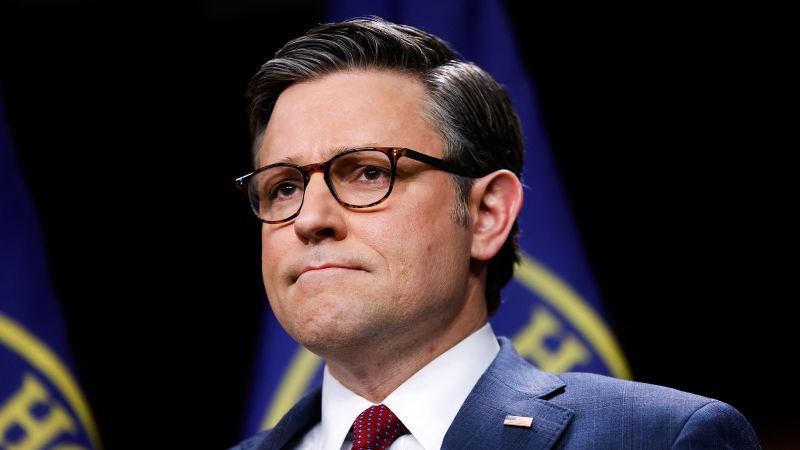House Democrats are currently divided over whether to save Speaker Mike Johnson from an effort to oust him, which is causing tensions within the party. Institutionalists are concerned that voting against the motion to vacate could prevent chaos in the House, especially close to a presidential election, while progressive members are warning that supporting Johnson could alienate the party’s base. The decision ultimately rests with House Democratic Leader Hakeem Jeffries, but the caucus is seeing divisions form, with fears of a chaotic speakership fight looming after recent events like the terror attacks against Israel.
Some Democrats, like Rep. Jared Moskowitz, are adamant about preventing figures like Marjorie Taylor Greene and Thomas Massie from taking over the House, citing concerns about the potential consequences for international relations. On the other hand, recently reelected Rep. Tom Suozzi has pledged to block any effort to oust Johnson, while others, including former Speaker Nancy Pelosi, are urging a cautious approach to the situation. The ongoing debate highlights the complexity of the decision facing House Democrats as they navigate the potential fallout from supporting or opposing Johnson.
There is a cautious willingness among some Democrats to support Johnson’s term as Speaker, but with certain conditions attached. Rep. Sara Jacobs stated that passing Ukraine funding would be a prerequisite for sparing Johnson from an early exit. Behind the scenes, Jeffries is working to address these concerns and guide the caucus on the path forward, emphasizing the importance of understanding the upcoming foreign aid bills before making any decisions. The decision whether to save Johnson could come sooner than expected, as there is pressure to act swiftly if the situation escalates.
Despite their differences, many Democrats acknowledge the work Johnson has done as Speaker, particularly in securing essential spending bills and navigating contentious issues within his own party. While his policy positions may differ from Democrats, Johnson is seen as a fair negotiator by some in the caucus. However, some Democrats remain firm in their stance against helping Johnson, citing ideological differences and concerns about the long-term implications of supporting him. The balance of power in the House could hinge on a handful of votes from both parties.
The prospect of another speaker fight is met with apprehension among Democrats, as they weigh the potential consequences of disrupting the legislative process and further destabilizing the institution. Lawmakers warn of the risks involved in prolonged turmoil within the House, which could hinder their ability to address pressing issues and fulfill their legislative responsibilities. With the fate of Johnson’s speakership hanging in the balance, Democrats are grappling with the decision of whether to support him in the face of mounting challenges and political pressures.
As the debate continues within the Democratic caucus, the decision on Johnson’s future as Speaker remains uncertain. Some members are adamant about opposing his leadership, while others are cautiously considering the ramifications of supporting him amid ongoing tensions. The outcome of this internal struggle will not only impact Johnson’s position but also have broader implications for the party’s unity and effectiveness in navigating complex legislative challenges. Ultimately, the decision on whether to save Johnson from an ousting effort will require careful consideration and strategic decision-making within the House Democratic caucus.


